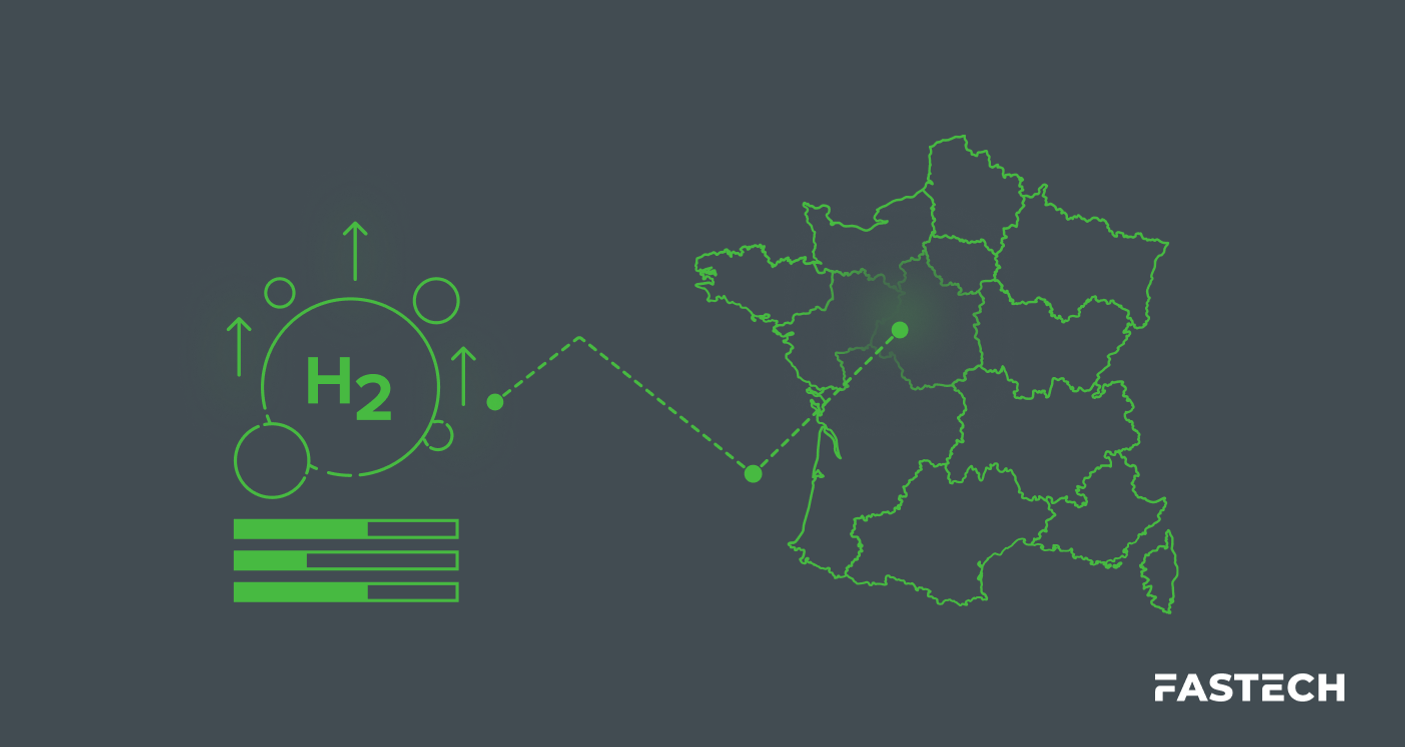Innovations in Hydrogen Fuel Cell Technology: Exploring the Latest Developments

From the housing sector to heavy-duty transportation, world leaders and governments are actively seeking out sustainable solutions capable of helping the globe transition away from fossil fuels.
Increasingly, hydrogen fuel cell technology appears to be that missing link. It’s the piece of the energy puzzle that can run where wind and solar walk, fulfilling the promise of renewable, efficient, and scalable energy solutions.
At its core, hydrogen fuel cells are electrochemical devices that convert chemical energy (from the reaction of hydrogen and oxygen) into electricity—and do so without producing any carbon emissions.
Increasingly, this promising technology appears capable of helping Western nations meet their ambitious net-zero 2050 targets. As we witness exponential technological leaps, the narrative is no longer about the viability of hydrogen fuel cells shaping our future. It’s about setting the stopwatch for when they will.
Advancements in Fuel Cell Technology Efficiency
Through an electrochemical process, hydrogen fuel cells have the ability to convert the chemical energy contained in hydrogen into electricity. The only byproducts of this process are pure water and heat, both of which can be redirected for use in helpful ways.
The hallmark of hydrogen fuel cells is their astounding efficiency (twice that of traditional combustion engines) thanks to their direct conversion of chemical energy into electricity. According to the US Department of Energy:
- A conventional combustion-based power plant typically generates electricity at efficiencies of 33 to 35% efficiency. In comparison, fuel cell systems can generate electricity at efficiencies up to 60% (and even higher with cogeneration).
- Compared to a conventional vehicle with a gasoline internal combustion engine, fuel cell systems in hydrogen-powered vehicles can utilize 60% of the fuel's energy, resulting in a reduction of over 50% in fuel consumption.
However, historically, a significant obstacle to hydrogen technology adoption was that it was less efficient than diesel. But that has changed in recent years with the emergence of even more advanced and efficient fuel cell technology and larger societal trends in the hydrogen market.
For example, in 2022, Loop Energy announced the development of a new hydrogen fuel cell that was more efficient than diesel engines.
Similarly, there have been recent strides in hydrogen fuel cell technology in terms of efficiency enhancements, including:
- Enhanced catalysts – High-performing catalysts have been developed to boost the reaction rates within the fuel cell, thereby increasing its power output and efficiency.
- Sophisticated membranes – Proton Exchange Membrane Fuel Cells (PEMFCs) have improved the ion conductivity while reducing fuel crossover, increasing efficiency while minimizing energy loss.
- Optimized fuel cell designs – From cell geometrics to gas diffusion layers, every element of the fuel cell's design has been scrutinized and optimized.
- System integration and management – Innovations in the control systems and integration of fuel cells with other components, like batteries in hybrid systems, have boosted overall energy efficiency.
Advancements in Durability
Fuel cells operate in a demanding high-temperature, high-pressure, corrosive environment, historically hindering their long-term durability. Add in moisture and contamination, frequent starting and stopping, and, over time, the catalyst materials within the fuel cells can degrade, resulting in a reduction in performance, especially for fuel cells that rely on noble metals like platinum.
Enter graphene, a potential game-changer for fuel cell durability. Researchers have developed a novel process to produce high-quality graphene, decorating it with platinum nanoparticles to create an ultra-durable fuel cell catalyst. This graphene-based catalyst outperformed commercial ones, showing 30% less activity loss in rigorous stress tests, setting a new standard for durability in fuel cell technology.
Emerging Technologies and Innovations
Hydrogen fuel cell technology is no longer just theoretical; it has been successfully deployed in various transportation and heavy-duty mobility instances. Some recent examples include:
- Hydrogen fuel cells in aviation – Universal Hydrogen and Airbus ZEROe have developed and flight-tested hydrogen-powered commercial aircraft that will be ready to hit the tarmacs as soon as 2025.
- Hydrogen fuel cells in maritime activities – Hydrogen has already begun integrating into the maritime industry with low-speed large-capacity vessels. In 2023, MF Hydra became the world’s first liquid hydrogen-powered ferry. And there’s optimism for expanding the use of hydrogen fuel cells in larger maritime vessels.
- Hydrogen fuel cells in the transport and mobility sectors – Hydrogen-powered vehicles, both personal and commercial, have been introduced to the market. This includes using Hydrogen (internal combustion engine) ICE trucks and hydrogen fuel cell electric vehicles (FCEVs) like the Toyota Mirai.
Ongoing Research and Development Efforts
Both private entities and public institutions are rallying behind the evolution of hydrogen fuel cell technology, with multiple projects and extensive research ventures either ongoing or being planned for the near future. Ultimately, these efforts aim to increase collaboration while accelerating innovation and adoption.
Some significant efforts include:
- The establishment of 6 to 10 regional hydrogen hubs meant to aid with the production, processing, transportation, storage, delivery, and end-use of hydrogen.
- Major vehicle manufacturers like Toyota, BMW, and Hyundai are committing to hydrogen development.
- Major international organizations such as the National Renewable Energy Laboratory (NREL) in the United States, Hydrogen Europe in the European Union, and the Japan Hydrogen Association are spearheading research initiatives and collaborative projects.
- Ventures like the HyBalance project in Europe seek to produce hydrogen using wind energy.
- Continued development of blue and green hydrogen production methods.
Hydrogen Cell Technology: Powering the Future
Hydrogen fuel cell technology, poised to be a game-changer for sustainability, has advanced significantly in efficiency, durability, and application. With promising uses in aviation, maritime activities, transport, and massive support from private businesses and governments alike, hydrogen fuel cells are steadily powering our journey toward a carbon-free future.
At FASTECH, we’re firm believers in the power of hydrogen fuel cells. As a leading end-to-end energy solutions provider specializing in conventional and alternative energy infrastructure, we partner with the private and public sectors to continue championing the promise of hydrogen.
Want to see what the future of clean energy holds? Reach out today.
Sources:
WIPO. Progress in hydrogen fuel cell technology development and deployment in China. https://www.wipo.int/edocs/pubdocs/en/wipo-pub-rn2022-4-en-global-challenges-in-focus.pdf
Department of Energy. Fuel Cells Fact Sheet. https://www.energy.gov/eere/fuelcells/articles/fuel-cells-fact-sheet
Reuters. Loop Energy says new hydrogen fuel cell more efficient than diesel engine. https://www.reuters.com/business/autos-transportation/loop-energy-says-new-hydrogen-fuel-cell-more-efficient-than-diesel-engine-2022-09-18/
Science Daily. Scientists Develop New Material for Longer Lasting Fuel Cells. https://www.sciencedaily.com/releases/2020/07/200722192148.htm
CNBC. Why Airbus and Others are Betting On Hydrogen Powered Planes. https://www.cnbc.com/2023/05/11/why-airbus-and-others-are-betting-on-hydrogen-powered-planes.html
Norled. MF Hydra Sails on Zero-Emissions. https://www.norled.no/en/news/the-mf-hydra-first-in-the-world/




